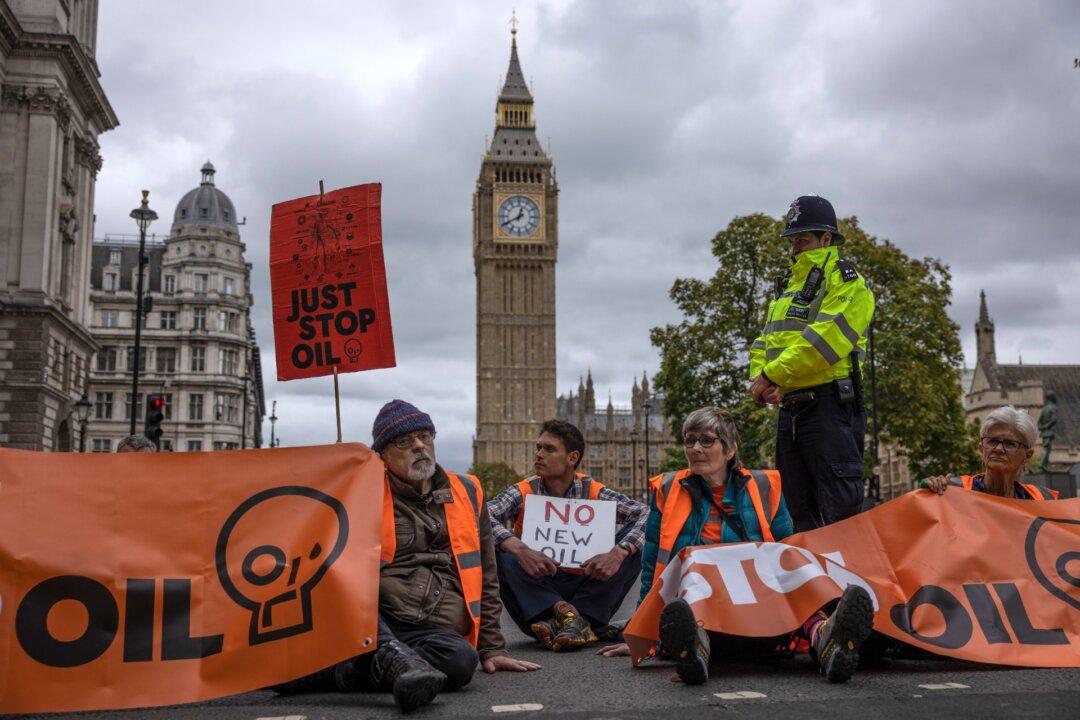UK Home Secretary Suella Braverman has urged the House of Lords to back a proposed law that will see “proper penalties” for protesters who use “guerrilla tactics” to cause widespread disruption to the public.
The UK government on Jan. 16 announced plans to give police more powers to tackle “disruptive protests” such as those organised by climate activists, allowing officers to intervene before protests become highly disruptive.





